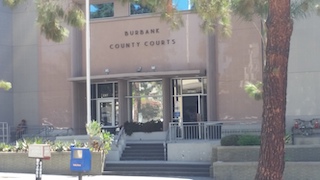Under Penal Code § 19.8(a), a person charged with or convicted of certain misdemeanors may request that the judge reclassify the charge as an infraction.
Before celebrating that your misdemeanor conviction or charge is listed above, double-check this with an experienced criminal defense attorney, as the list does change with time, especially due to new laws being effective each year (i.e. Proposition 64, the Adult Use of Marijuana Act expanded this list).
If the judge grants such a request, this can be beneficial for background or criminal history searches, insofar as many such companies only screen for misdemeanors and felonies. A person may appear more attractive to an employer without a misdemeanor on his or her criminal history.
Similarly, if the charge is pending, it is rare for the district attorney to represent the People of the State of California in the trial of an infraction. However, the judge cannot take the prosecution’s place. People v. Daggett (1988) 206 Cal.App.3d Supp. 1 253 Cal.Rptr. 195.
However, if the case is still pending, there are tactical reasons not to seek such a reduction. This is because an infraction is punishable only by a fine (the maximum is $250), not imprisonment in county jail or prison. As such, a person charged with an infraction has fewer constitutional rights than a misdemeanor (People v. Sava (1987) 190 Cal.App.3d 935, 939, 235 Cal.Rptr. 694), which can be significant. These include the right to a jury trial, the right to a speedy trial (and the right to bring a Serna motion) and the right to a public defender (however, a defendant can hire a private attorney to appear on his behalf in an infraction under Penal Code §§ 19.7 and 977(a)).
Therefore, we suggest that while the case is pending (subject to the two exceptions listed in the last paragraph below), allow it to remain a misdemeanor if any of these rights are significant given your case facts. Then, after the plea to the charge, seek reduction to an infraction.
There are certainly exceptions to this, the most significant being that if one has professional licensing issues, a plea to a misdemeanor can result in suspension of one’s professional license or being placed on probation by the licensing board. The other significant exception is if one is not a U.S. citizen, a plea to certain misdemeanors can constitute commission of a crime of moral turpitude, which could result in deportation proceedings. Therefore, we strongly suggest one speak to an experienced criminal defense attorney before boldly proceeding with reduction of an infraction or deciding to wait, as the consequences can be life-changing.
For more information about reducing charges to a lower level, please click on the following articles:
- What Is the Difference Between an Infraction and a Misdemeanor?
- When Can One Ask the Judge to Reduce a Felony to a Misdemeanor under Penal Code § 17(b)?
- Expungement of an Infraction?
Contact us. Burbank Courthouse
Burbank Courthouse